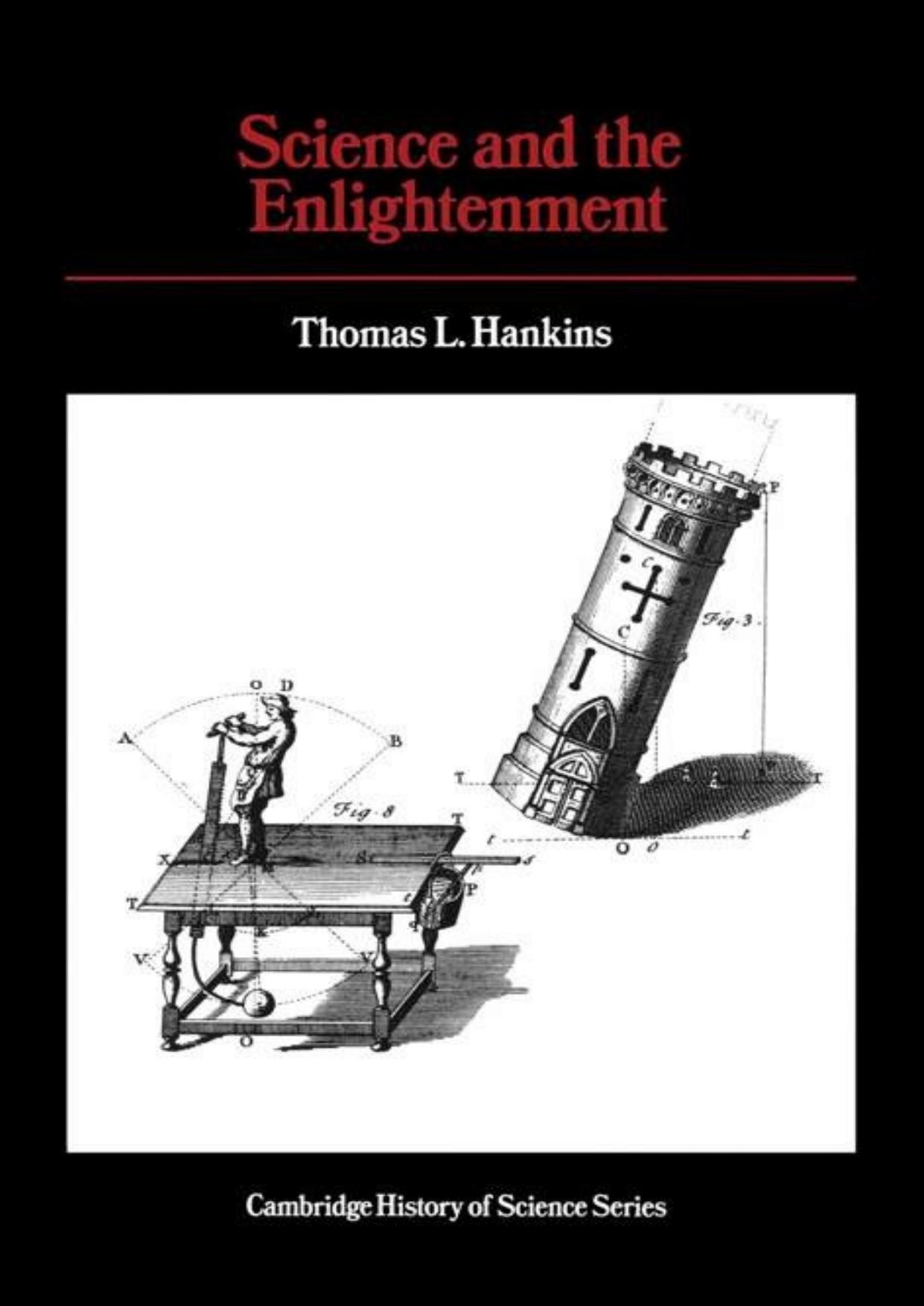Science and the Enlightenment (Cambridge Studies in the History of Science) by Thomas L. Hankins

Author:Thomas L. Hankins [Hankins, Thomas L.]
Language: eng
Format: epub, azw3, mobi, pdf
Publisher: Cambridge University Press
Published: 1985-04-25T21:00:00+00:00
Fig. 5.1. Physiology as mechanical philosophy. G. A. Borelli, in his De motu animalium [On the motion of animals] (1680) studied the human body as a machine. The mechanical philosophy could explain the action of the bones and muscles in the limbs, and it could explain the action of the heart, but beyond these most obvious mechanical functions it failed to explain the vital functions of the human body. Sources: G. A. Borelli, De motu animalium (1680). By permission of the Syndics of Cambridge University Library.
The mechanical philosophy was seductive, but it could explain vital phenomena such as growth, nutrition, and reproduction only by resorting to the most outlandish hypotheses, none of which was confirmable by experiment. During the first half of the eighteenth century this easy optimism waned, and physiologists realized that a mechanical analysis of living things might be impossible. In 1733 Bernard Fontenelle stated that mathematics certainly did apply to living things but had been unsuccessful in explaining how they functioned because of their great complexity. Life may be merely the result of mechanical organization, but if so it is beyond the reach of investigation. A better alternative would be to study the vital phenomena themselves and attempt to reduce them to rule, without any suppositions about original causes or imagined mechanisms. As a result, experimental physiology in the eighteenth century became phenomenalistic. Experimenters described and linked vital phenomena to the best of their ability without attempting mechanical models.
Natural history experienced a rebirth in the late seventeenth century at the time when the mechanical philosophy was most strongly held. There were several reasons for the new enthusiasm for natural history. One was religious. The mechanical philosophy recognized a creator God but denied him any role in everyday operations of the universe. Therefore God could be known in nature not from any acts but only from the extraordinary complexity and harmony of his creation. Natural history described this complexity in great detail.
From the beginning of the eighteenth century, English natural philosophers published a continuous stream of books designed to reveal the wonders of God’s creation through the new sciences. The Cosmologia sacra [Sacred cosmology] (1701) of the microscopist and plant physiologist Nehemiah Grew (1641–1712) was followed in 1704 by John Ray’s The wisdom of God manifested in the works of the creation. Ray (1627–1705) was the leader of the natural history revival in England and the best naturalist of his age. There was nothing frivolous or shallow about the science that he brought to the revelation of God. The following year, George Cheyne (1671–1743) published his Philosophical principles of religion natural and revealed, and in 1713 William Derham (1657–1735) published Physico-theology, or a demonstration of the being and attributes of God from his works of creation (see Figure 5.2). Physico-theology gave the name to this genre of natural history, and Derham soon followed it with an Astro-theology. Ray’s Wisdom of God went through six editions in ten years, and Derham’s Physico-theology had three London editions in one year and five French editions.
Download
Science and the Enlightenment (Cambridge Studies in the History of Science) by Thomas L. Hankins.azw3
Science and the Enlightenment (Cambridge Studies in the History of Science) by Thomas L. Hankins.mobi
Science and the Enlightenment (Cambridge Studies in the History of Science) by Thomas L. Hankins.pdf
This site does not store any files on its server. We only index and link to content provided by other sites. Please contact the content providers to delete copyright contents if any and email us, we'll remove relevant links or contents immediately.
Enlightenment Now: The Case for Reason, Science, Humanism, and Progress by Steven Pinker(7309)
A Journey Through Charms and Defence Against the Dark Arts (Harry Potter: A Journey Through…) by Pottermore Publishing(4811)
The Immortal Life of Henrietta Lacks by Rebecca Skloot(4582)
A Journey Through Divination and Astronomy by Publishing Pottermore(4384)
Elon Musk by Ashlee Vance(4123)
Origin Story: A Big History of Everything by David Christian(3691)
COSMOS by Carl Sagan(3622)
Alchemy and Alchemists by C. J. S. Thompson(3516)
Bad Pharma by Ben Goldacre(3424)
Enlightenment Now by Steven Pinker(3367)
Shadow of Night by Deborah Harkness(3362)
Inferior by Angela Saini(3311)
A Mind For Numbers: How to Excel at Math and Science (Even If You Flunked Algebra) by Barbara Oakley(3304)
Origin Story by David Christian(3198)
The Code Book by Simon Singh(3186)
Signature in the Cell: DNA and the Evidence for Intelligent Design by Stephen C. Meyer(3134)
The Elements by Theodore Gray(3054)
A Brief History of Time by Stephen Hawking(3023)
A Journey Through Potions and Herbology (A Journey Through…) by Pottermore Publishing(2852)
